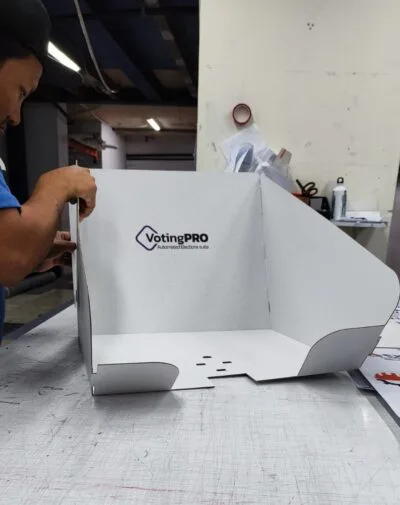
In a world increasingly connected by digital threads, the sanctity of the individual’s right to privacy in voting—especially in HOA and condo elections—remains a fundamental concern. Voting is not only a civic duty but also a personal act that must be protected from external influence. Therefore, it is crucial to preserve confidentiality throughout the voting process.
Understanding Voter Privacy
Voter privacy ensures that each ballot remains confidential. This principle supports free and fair elections and protects individuals from pressure or retaliation. In other words, it allows voters to express their choices without fear, which is essential in any democratic system. For more information on voter privacy rights, visit the Electronic Privacy Information Center (EPIC) here.
Challenges to Voting Privacy
Modern election systems, especially digital platforms, bring new challenges. For example, cybersecurity threats and physical snooping can compromise privacy. As a result, election organizers must consider both digital and physical vulnerabilities in HOA and condo elections.
Strategies for Enhancing Voter Privacy
- Use of Secure Technologies: Using encryption and secure communication channels helps protect voting data. These technologies anonymize ballots, ensuring they cannot be traced back to individuals.
- Physical and Digital Isolation: Privacy booths in physical settings and malware-resistant interfaces in digital voting both contribute to maintaining privacy. Each method minimizes the risk of exposure
- Legal and Regulatory Frameworks: Effective policies ensure systems uphold privacy. Regular audits and compliance checks help enforce these standards
- Public Education: Voter education fosters confidence. For instance, when individuals understand how their data is handled, they feel more secure participating in HOA and condo elections.

VotingPRO’s Commitment to Privacy
At VotingPRO, we understand the importance of privacy in the voting process. Our systems implement state-of-the-art security features to ensure that every vote remains confidential and secure. From advanced encryption techniques to rigorous testing and compliance with international privacy standards, we are committed to upholding the trust placed in us by voters and electoral organizations.
Additionally, our team of industrial designers has meticulously crafted our privacy booth to ensure that individual voting choices are completely shielded from view, guaranteeing that no one can see who you are voting for. This careful design is part of our dedication to creating a voting environment where every individual can vote securely and privately.
Conclusion
The right to voter privacy in HOA and condo elections is vital. By using secure systems, educating voters, and enforcing privacy protocols, communities create a trusted environment. Ultimately, VotingPRO provides the tools needed to ensure that each vote remains confidential and secure.
To learn more, visit our article on Boost Election Quorum with Resident Engagement.

